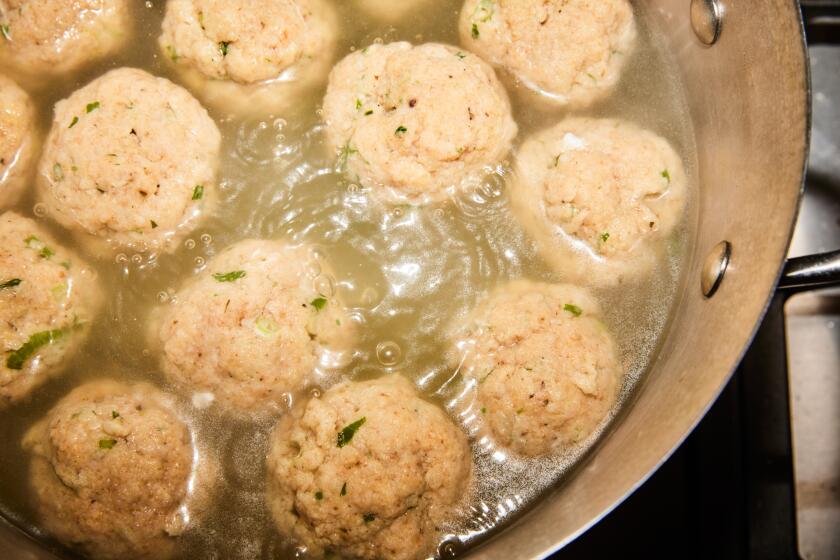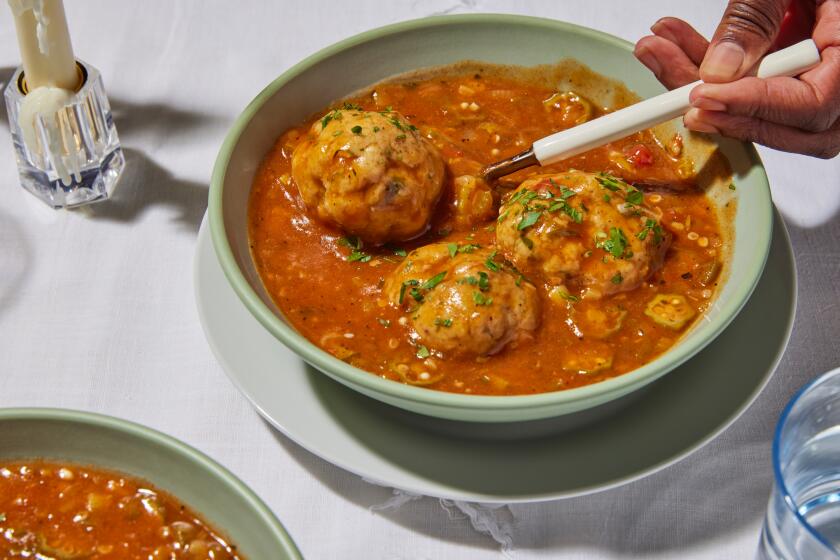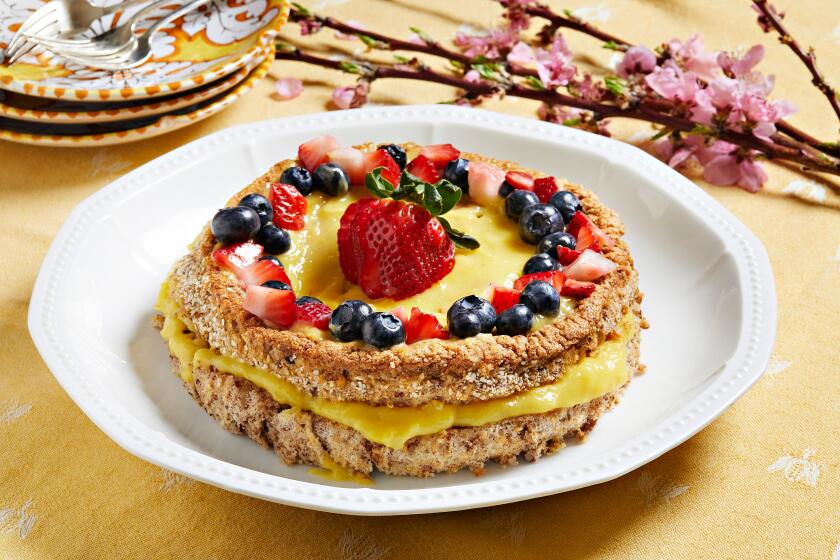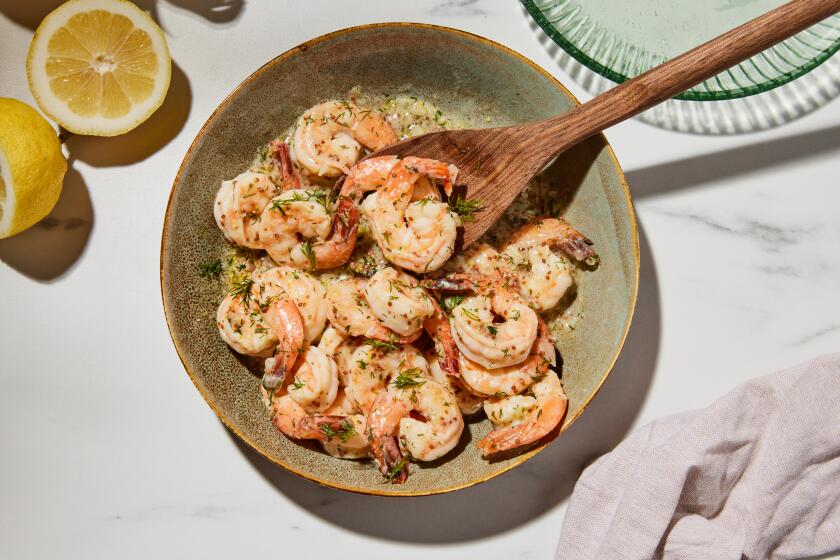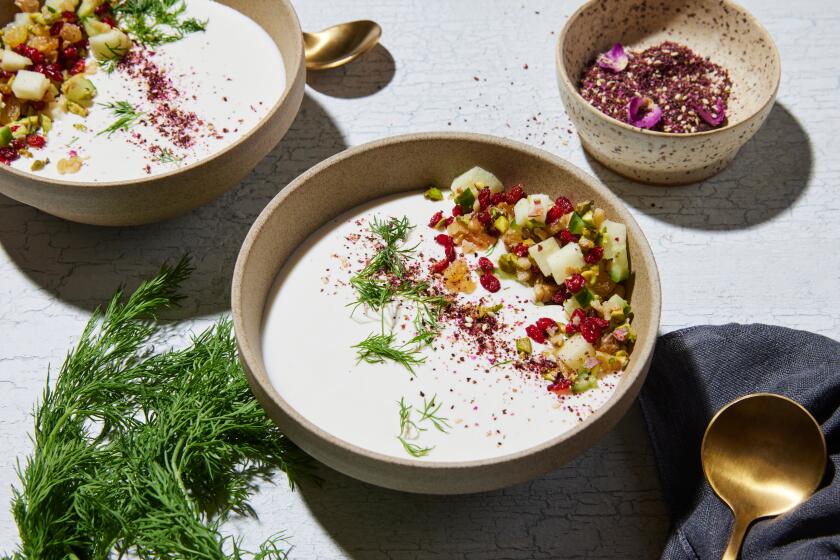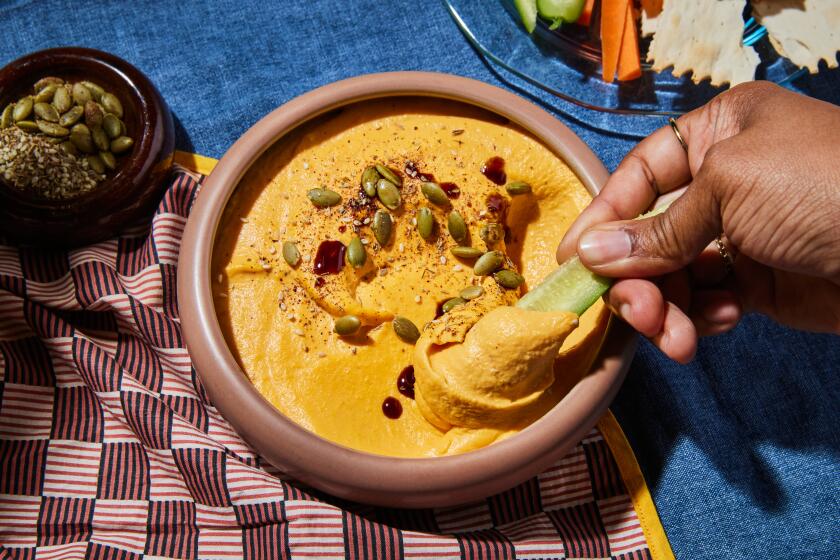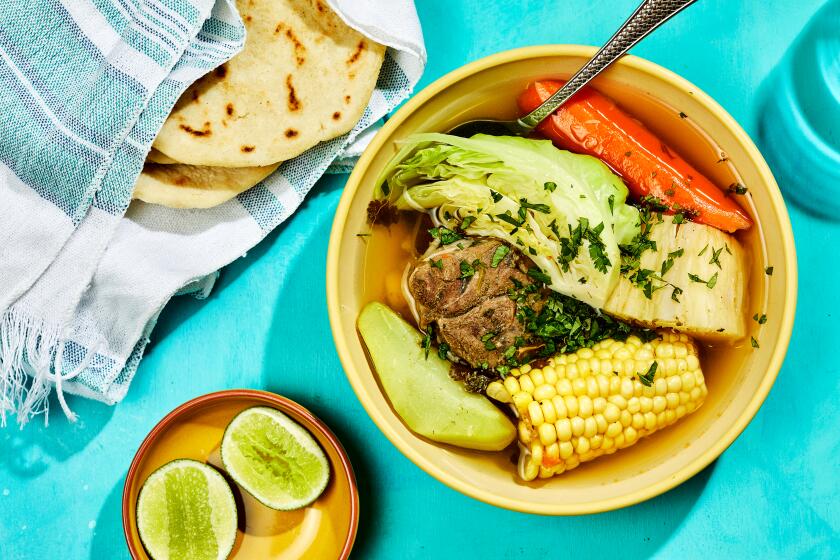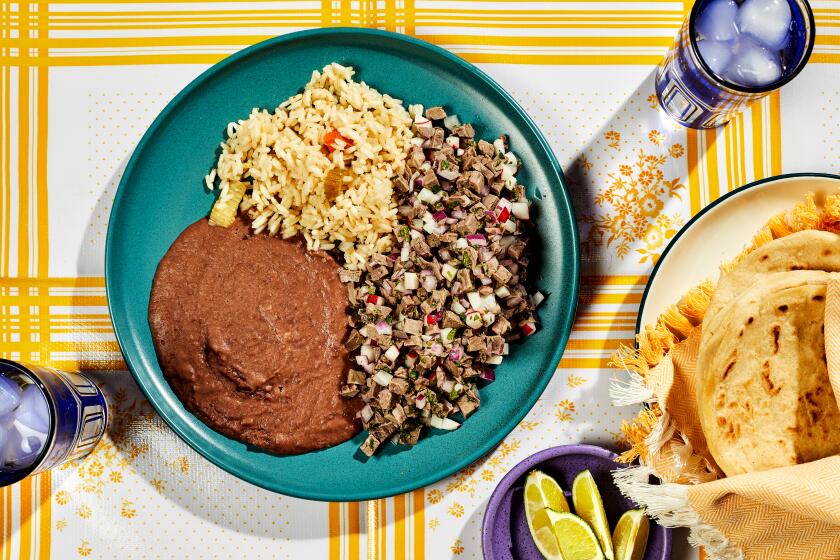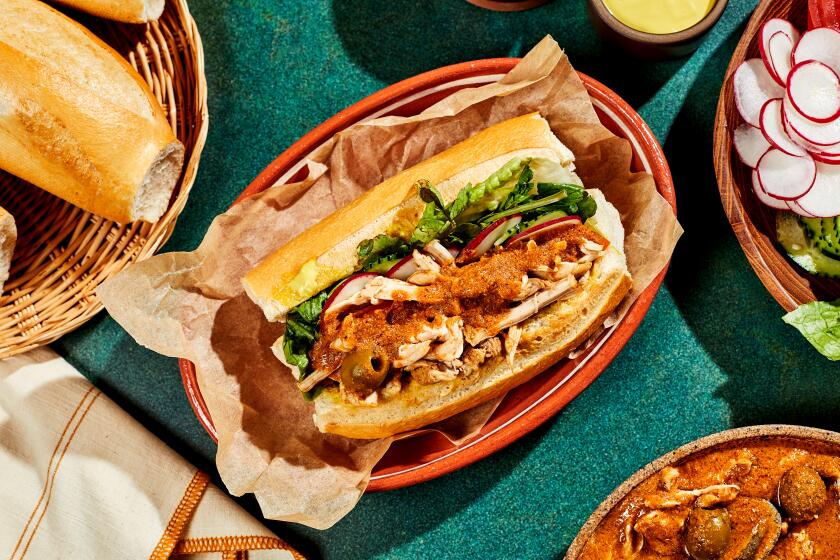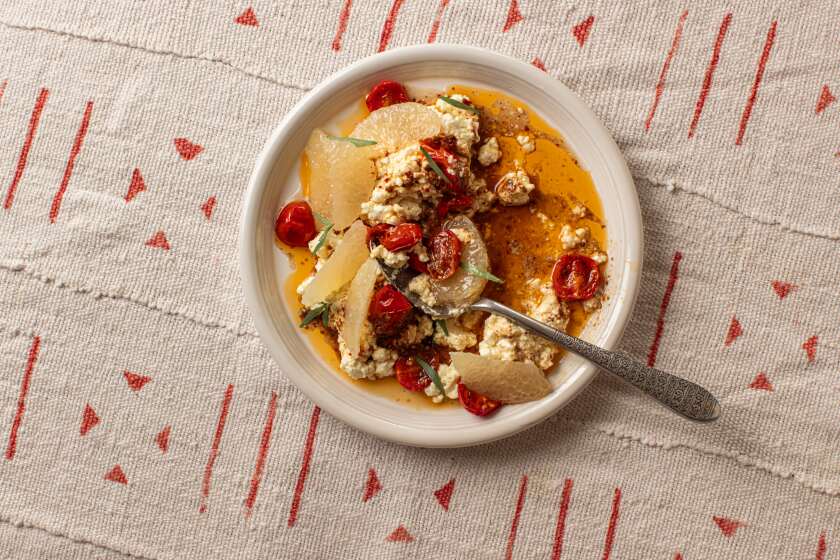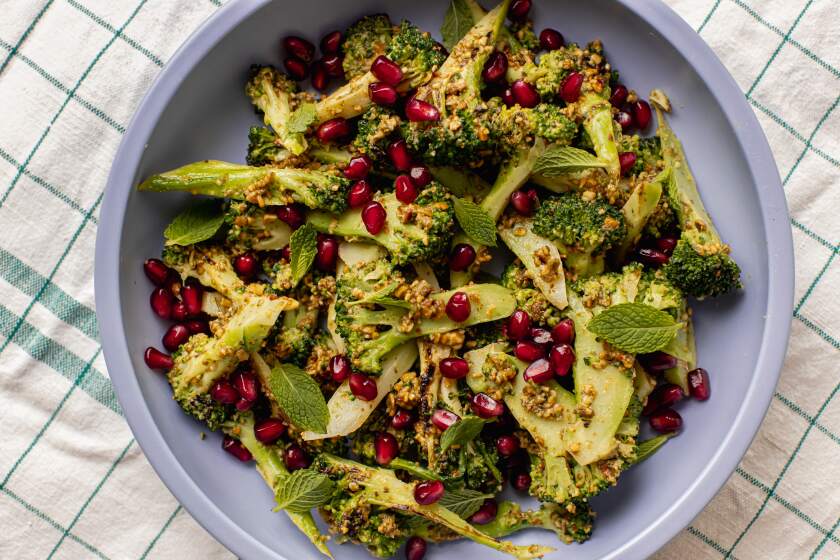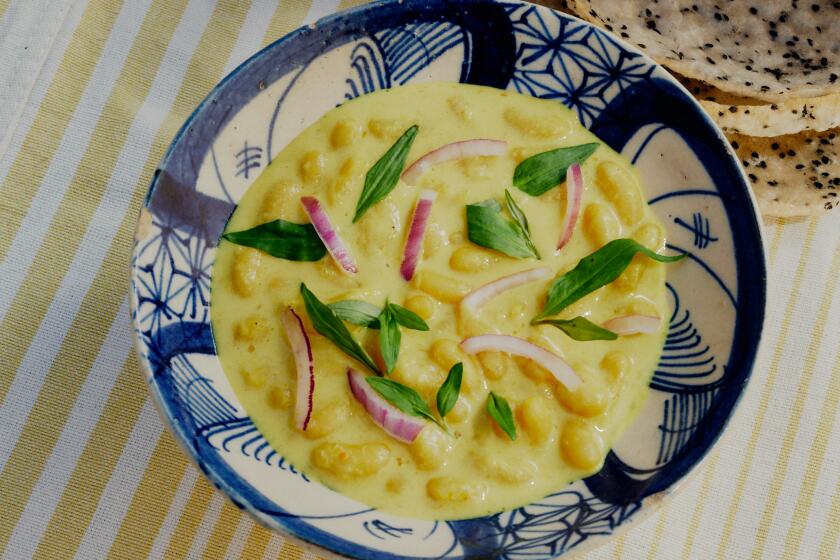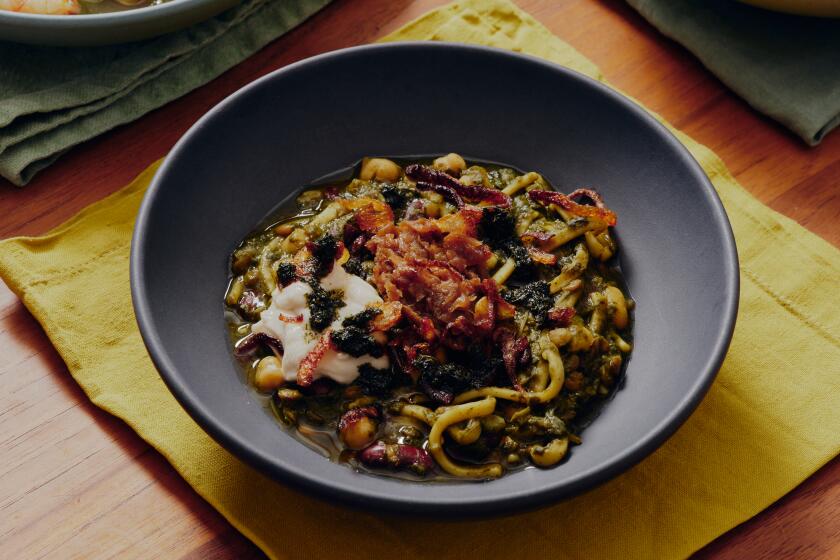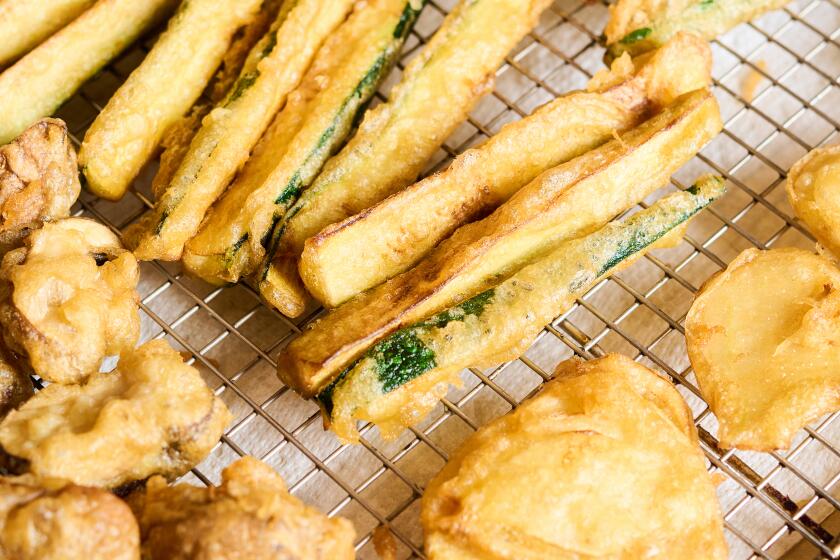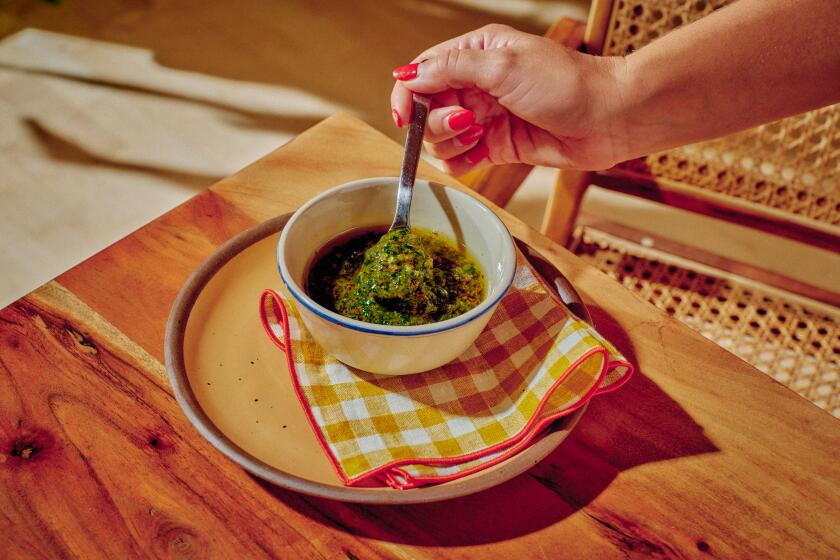Tamarind and date chutney

When a friend, originally from India, invited me to a “street food” party in Simi Valley, I expected a sort of outdoor fair where I would wander among food booths. Instead, I found a fun party in someone’s home where a young caterer, Raunaq Savur, had prepared a buffet of Bombay street snacks.
Savur was born in Bombay (now Mumbai), a city famous for the delicious treats offered by street vendors. Street food is everywhere there, from the beaches to the heart of the city. Popular street fare such as bhel puri, a cross between a salad and a crunchy chips mix, and pav bhaji, spiced mashed vegetables served with soft rolls, have spread to other parts of India. And in recent years, Bombay-trained chefs have put their versions of street treats on restaurant menus in India and L.A.
Savur’s party idea is perfect for casual California entertaining. The food is novel for many people, colorful and fun to eat -- with a spiciness that adds excitement. Guests can pick and choose, arranging their own plates, adding on chutneys and garnishes to taste. Beer’s a good accompaniment, as are summer cocktails such as gin and tonic. For nonalcoholic drinks, try nimbu pani (an Indian limeade: fresh squeezed lime juice with simple syrup and water) or nimbu soda (lime juice, simple syrup and sparkling water).
Plan for a menu of three dishes, along with three or more chutneys. You’ll need to take a list to one of L.A.’s many Indian markets, but once you have the ingredients assembled, the recipes are not complicated. Some have several steps, many of which can be done in advance. The chutneys can be made days ahead of time, as can other elements such as rotis (flatbread) and meat filling.
As a main dish, try Neela Paniz’s frankie, which is tender flatbread wrapped around spicy, stewed lamb. Paniz, who was born in Bombay, created it for her Bombay Cafe in West Los Angeles. It’s been a great hit there, and much copied by other Indian restaurants.
According to Paniz, the frankie appeared in Bombay in the mid ‘70s as a variation on a Calcutta snack of grilled meat wrapped in a flatbread similar to nan. The Bombay version uses curried meat. “I believe they named it a ‘frankie’ as a takeoff on a frankfurter,” she says. The ends of the wrapper are left open, like a rolled soft taco. Serve them whole or cut into halves or thirds for finger food.
Along with the frankies, offer a bowl of bhel puri, a terrific side dish that’s not quite a vegetable salad, not quite a crunch snack mix. Savur’s shortcut version combines a ready-made Indian snack mix that contains crisp tidbits such as puffed rice and tiny fried puris (a puffy flat bread) with peanuts, sev (fine chickpea noodles), onion, tomatoes, diced potato and sweet and spicy chutneys.
“I think that the best way to enjoy bhel is to have all the ingredients prepped beforehand and laid out on the table separately, very much like a taco bar,” says Savur. In addition to the chutneys and diced vegetables called for in the recipe, you could experiment with accompaniments including chopped cilantro, fresh chiles and lemon wedges, yogurt raita and cut-up fresh fruit.
I first tasted -- and loved -- pav bhaji at Bombay Bite in Westwood. Chef Preet Kamble’s recipe combines pav (bread) and bhaji (vegetables), in this case including potatoes, carrots, cauliflower, green peppers, peas and tomatoes. The vegetables are cooked into a deliciously spiced soft paste. The rolls, cut in half, simmer in butter and the pan juices until impregnated with rich flavor. The idea is to spread the paste on the hot rolls, like an open-faced sandwich.
“Pav bhaji is the top thing on the street in Bombay,” says Kamble, who was born there. “It has become a big fad. All the major restaurants and hotels have put it on the menu, but that in the street is tastiest.”
Toasted rolls traditionally go with pav bhaji, but as a party dip it’s great with chips, wedges of pita bread or Indian breads from a market or restaurant.
Like any small-plates party, a Bombay street-food spread is all about planning. Prepare some elements in advance, make some chutneys and purchase others, mix in a few discoveries from the Indian market and soon you’ll have a festive buffet -- something like that outdoor food fair I imagined, after all.
Place the tamarind pulp in a bowl. Pour 1 1/2 cups of boiling water over the top, cover and allow it to soak overnight. Place the dates in another bowl, pour the remaining one-half cup of boiling water over the dates, cover and allow them to stand overnight.
Knead the tamarind with your fingers to break up the lumps. Pour the pulp and soaking liquid into a fine strainer set over a nonreactive saucepan. Scrape a wooden spoon over the pulp to force through to the saucepan. Scoop out the pulp remaining in the strainer, return it to the bowl and add about one-fourth cup of hot water. Knead again, then pour the pulp and soaking liquid into the strainer and press the pulp with the wooden spoon. Discard pulp remaining in strainer. Follow the same procedure with the dates.
Add the cumin, asafetida, black and cayenne peppers, black and regular salt, sugar and jaggery. Cook over medium heat, stirring frequently, until the jaggery melts, about 5 minutes. Reduce the heat to low and simmer for about 10 minutes. Check the seasoning and adjust for sweetness.
Get our Cooking newsletter.
Your roundup of inspiring recipes and kitchen tricks.
You may occasionally receive promotional content from the Los Angeles Times.

